
Baku’s first inclusive craft class: sparking interest in children with disabilities
“We tried to take our son to sports and various courses but nothing was interesting to him, he did not want to leave the house. He went to a few classes and then stopped.
However, he comes here with pleasure. He waits all week for Wednesday and he gets up early in the morning in a good mood,” says Elbrus, a father whose son has developmental problems caused by cerebral palsy.
The class that sparked the boy’s interest takes place at the Inclusive Arts and Crafts Training Centre, a new vocational training platform for children and youth with disabilities in Baku. In September, courses covering a variety of traditional Azerbaijani arts including ceramics, woodwork and beads and polymer clay crafts and batik and stained glass crafts were established. The courses run from six months to one year.
Elbrus, who travels to the centre from a neighbouring city with his son, noticed positive changes in his son after attending the classes for just one month.
“I used to bring my son by car, but now we do not have one and we travel from Sumgait by bus. Until recently my son was uncomfortable on public transport but I noticed that he began to behave more calmly and freely. [Now] he gets in and out of the bus on his own,” he says.
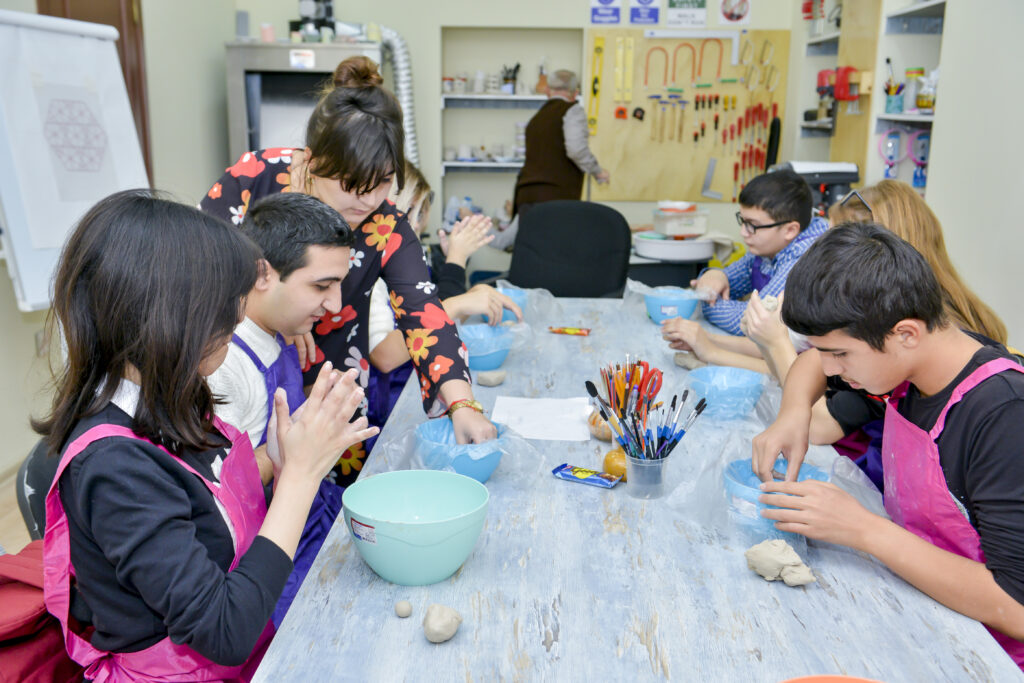 Baku’s first inclusive craft class
Baku’s first inclusive craft class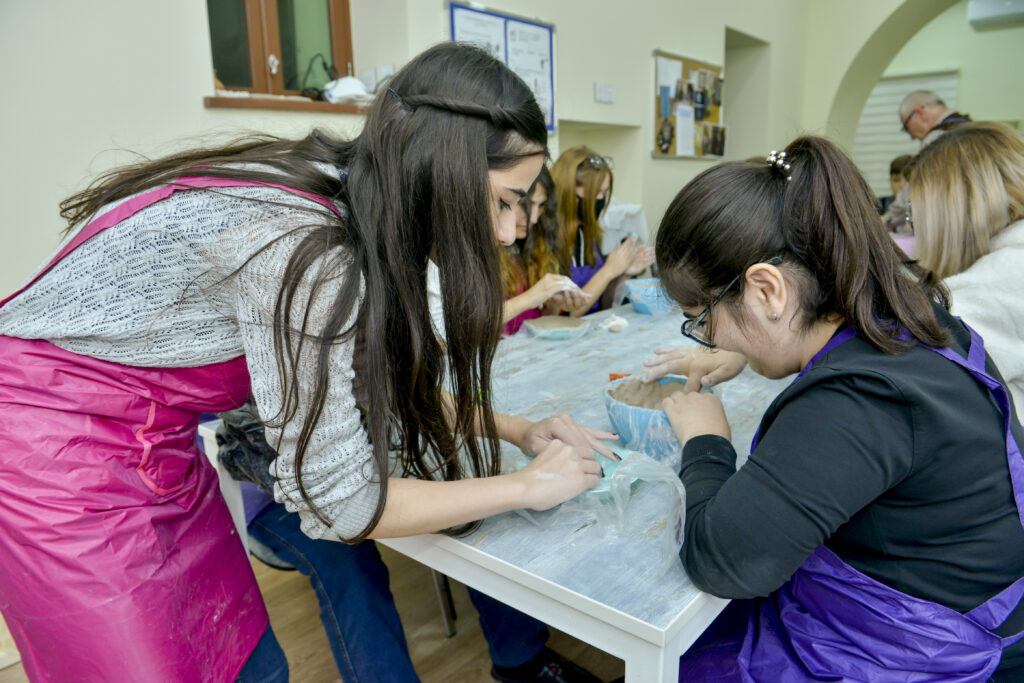 Baku’s first inclusive craft class
Baku’s first inclusive craft class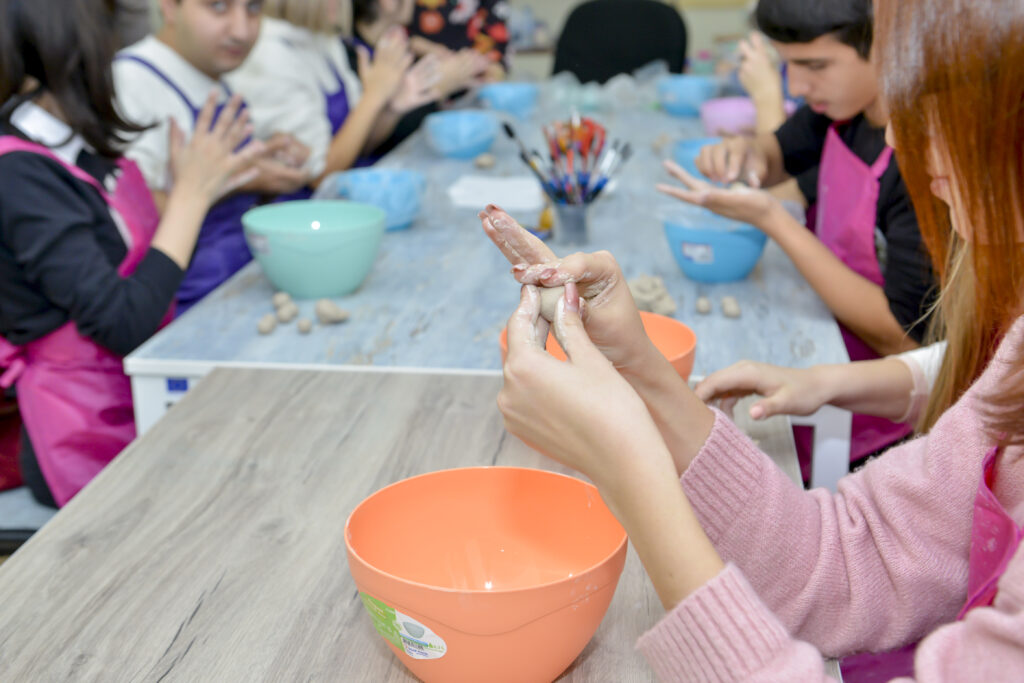 Baku’s first inclusive craft class
Baku’s first inclusive craft class
The project is funded by the European Union and is implemented by the United Nations Development Programme (UNDP) together with the administration of Icheri Sheher (Baku Old City). The inclusive training centre is a part of the Icheri Sheher Centre for Traditional Art, where professional craftspeople create works-of-art with national Azerbaijani flavour.
According to Zarina Aliyeva, the project’s chief expert, the project has two goals: to teach participants basic craft skills and to help them express themselves through art. The course also helps to develop the communication skills of children with disabilities, who are commonly isolated from the society.
About 70,000 children with disabilities are registered in Azerbaijan, a country with a population of 10 million.
According to the Azerbaijani Ministry of Education, only 37% of the children are home-schooled or attend special boarding schools. The rest of the children with disabilities are not educated, and are deprived of all communication outside of their family.
“It is important to remember that an isolated child with a disability tomorrow will become an insecure adult with no social skills and, having being deprived of education, he will remain dependent on family members all of his life,” Zarina Aliyeva says.
That is why, according to Zarina, it is so important to give children with disabilities the opportunity to communicate and learn with other children.
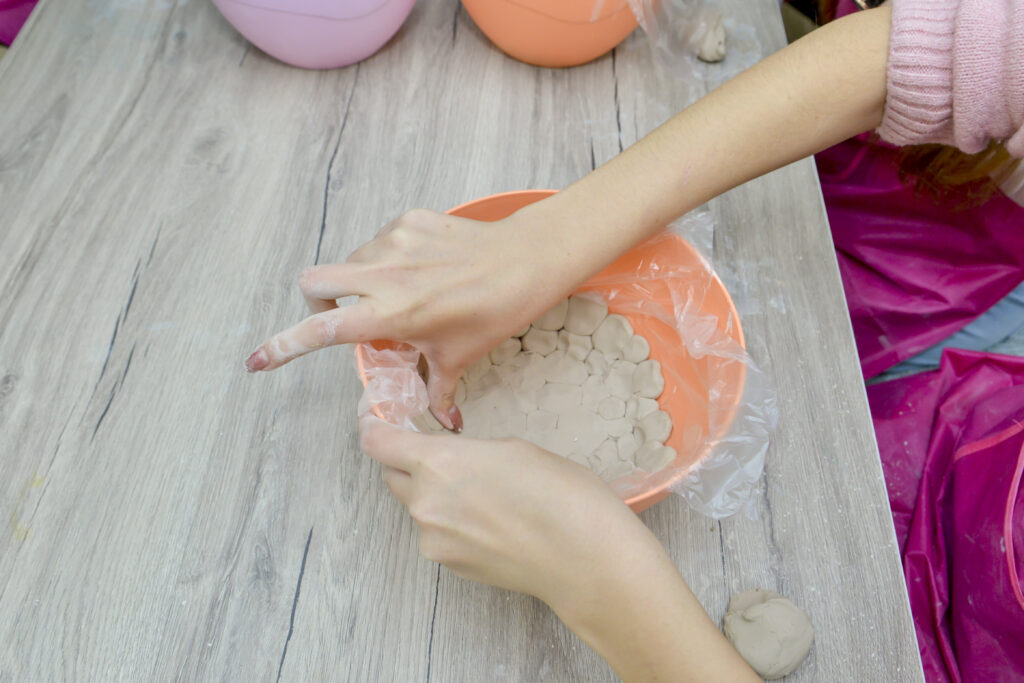 Baku’s first inclusive craft class
Baku’s first inclusive craft class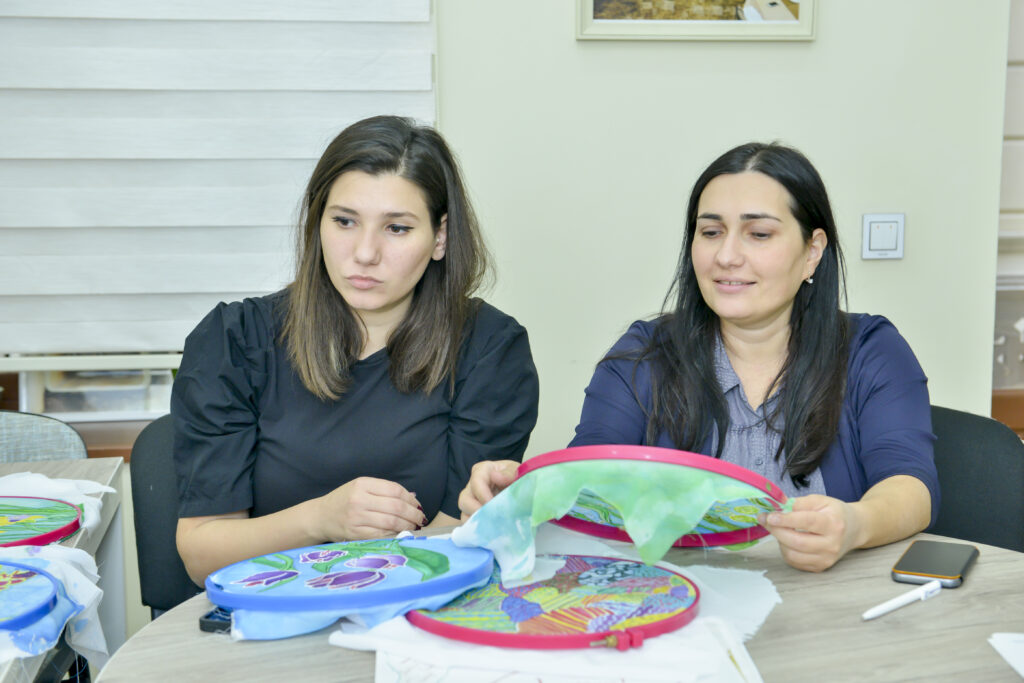 Zarina Aliyeva (right), the project’s chief expert
Zarina Aliyeva (right), the project’s chief expert
At the moment the inclusive training centre in Icheri Sheher brings 65 children together, including 25 children with various forms of disabilities and 40 children over 15 years old without disabilities. The groups are formed in such a way that four to five students with disabilities and six to seven students without disabilities engage in each class. Experts consider this composition optimal to create a comfortable learning environment for everyone.
Professional craftspeople with extensive experience teach at the centre. One of them is a ceramist with 40 years of experience, Salekh Mammadov. He began working with children through an inclusive craft class and considers the classes a very effective way to develop children through art and beauty.
“Even though we do not create masterpieces here, even the simplest ceramic cup made by a child’s hands carries the warmth of their heart. It is not perfect, but it is a reflection of their inner world. This is where creativity lies in showing your individuality,” he says.
According to the teacher, the creative class provides ideal conditions for children to engage with each other. This process occurs naturally as children communicate, joke and help each other throughout the class. Salekh Mammadov does not ignore the possibility that, if they ran into each other on the subway or in the park, they would pass by without paying any attention to each other. In the classroom however, they are united by a single interesting thing.
“What is the main thing for a teacher working in an inclusive class? To love children and to love working with them. We have to make the children see something interesting in our craft, to spark interest and the love for life in them,” says Saleh Mammadov, whose positive energy rubs off on those around him.
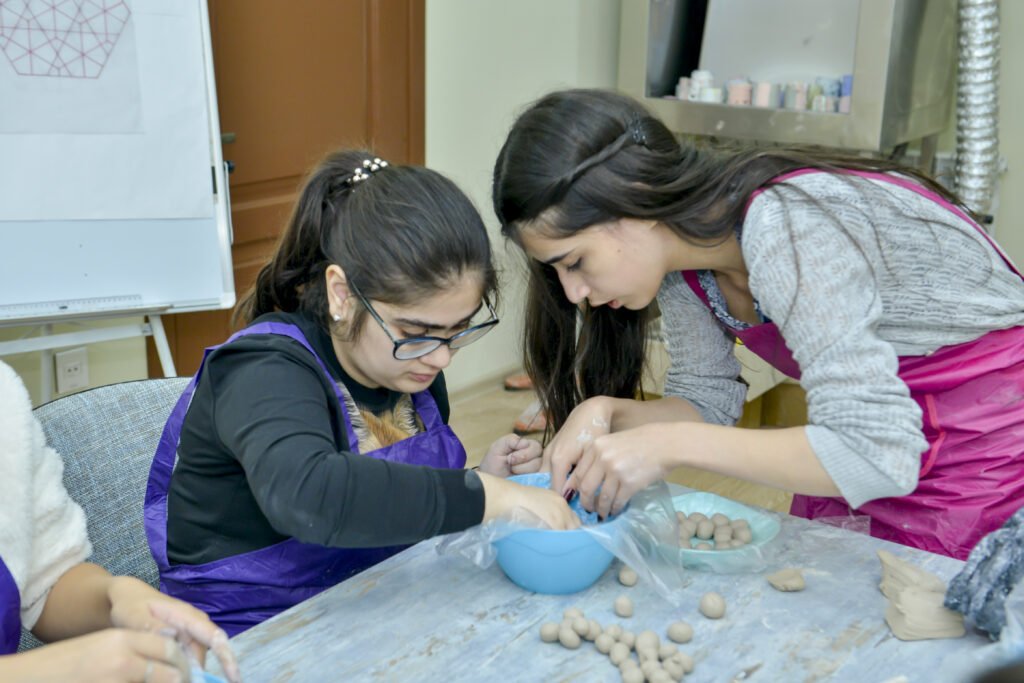 Baku’s first inclusive craft class
Baku’s first inclusive craft class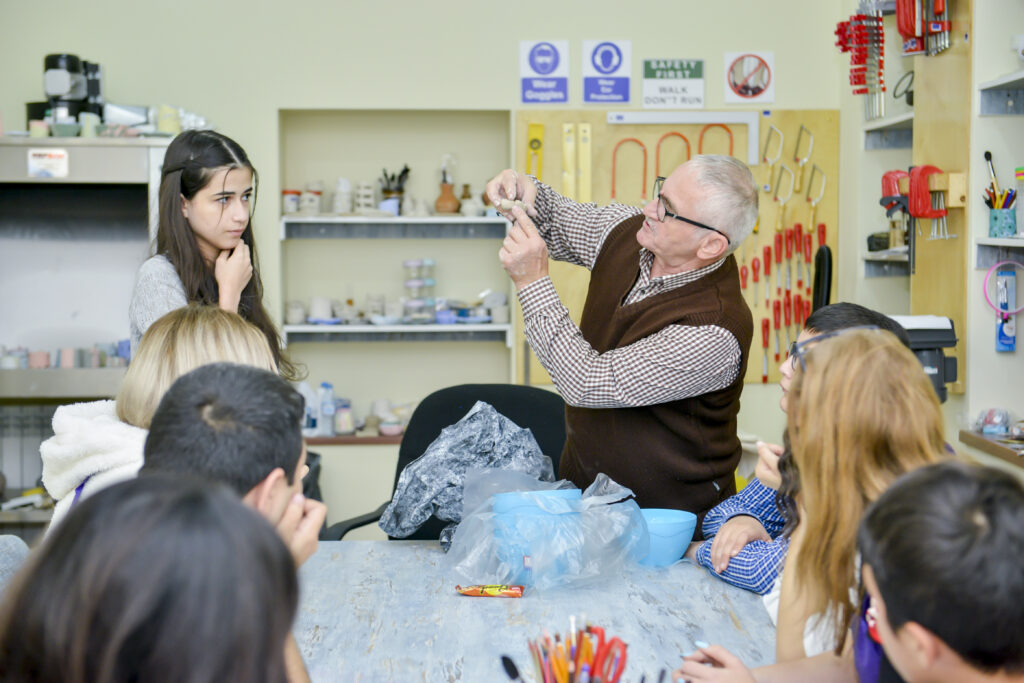 Trainer Salekh Mammadov (centre) is a ceramist with 40 years of experience
Trainer Salekh Mammadov (centre) is a ceramist with 40 years of experience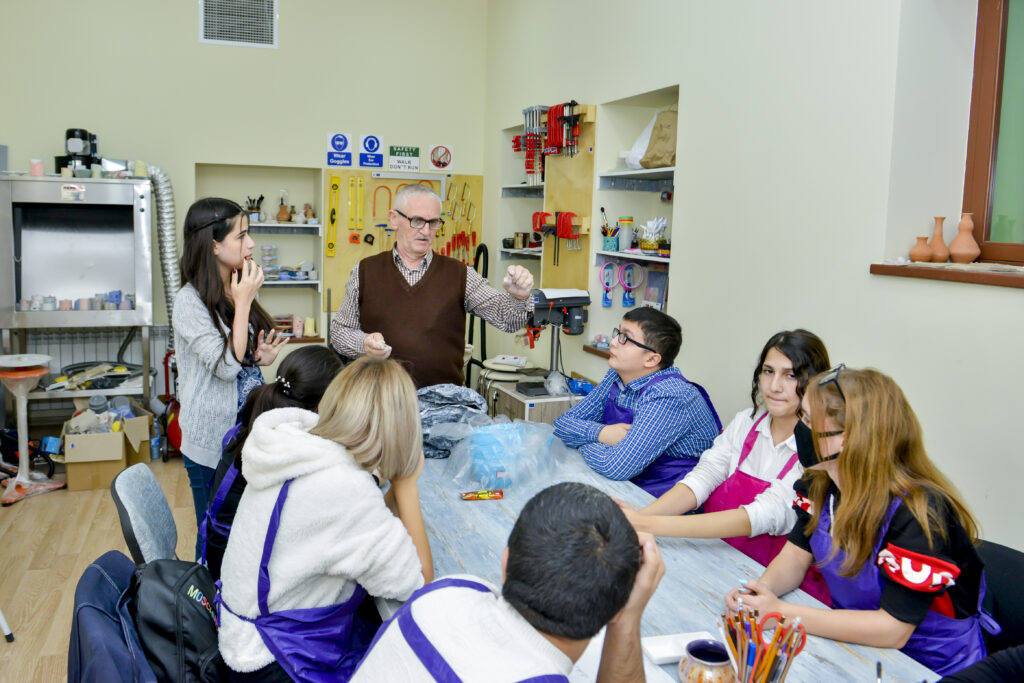 Trainer Salekh Mammadov (centre) is a ceramist with 40 years of experience
Trainer Salekh Mammadov (centre) is a ceramist with 40 years of experience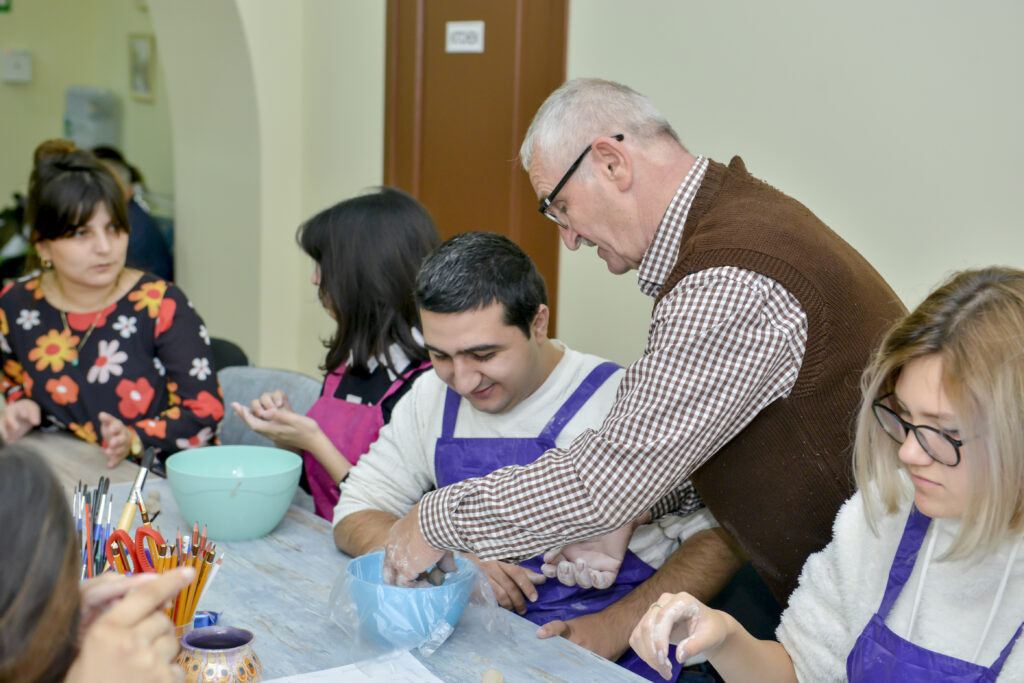 Trainer Salekh Mammadov (centre) conducts ceramics class at the centre
Trainer Salekh Mammadov (centre) conducts ceramics class at the centre
According to Gulmira, the mother of a 17-year-old girl with a disability associated with cerebral palsy, out of all of the paid classes she has taken her daughter to, the children have never been welcomed with the warmth and attention that they receive at the centre.
“Here we come absolutely for free. My child wants to go there because her interest is triggered. This is the most important thing for me,” she says, noting the student’s positive attitude towards the children with disabilities and appreciating the work of the staff.
Volunteers from the special education department of the State Pedagogical University assist the teacher. Their tasks include individually assisting children with disabilities if necessary, as well as facilitating interaction between children with and without development problems.
The team also includes specialists such as a psychologist, a social worker, a speech therapist and a sign language interpreter. These staff members work with children with disabilities individually as part of the development plans drawn up for each of them. Children are also taught basic life skills and learn to write simple business plans.
“I really like it here. I learned how to make paper baskets and clay dishes. I made friends here,” says one of the students with development problems. “When I grow up, I dream of being a teacher and working with children.”
Next year, all graduates of the centre will have the opportunity to submit their business plans for selling the crafts they have made. A special jury will select the best projects and the winning students will receive row materials necessary for their work. Some of the projects will be displayed at a large exhibition in November 2020.
Sometimes people with disabilities have extraordinary talents and society is deprived of these when it doesn’t give them the opportunity to explore them.
For example, the famous German composer, L. Beethoven (1770 – 1827), wrote his most famous work after he completely lost his hearing. An example from the 21st century is the world-famous English astrophysicist, Stephen Hawking (1942 – 2018), who was almost completely paralysed as a result of the motor neuron disease. He left his mark on the world’s science history.
“According to the social model of disabilities developed in the Western world, the problem is not the person’s disability, but the lack of conditions in their life. For example, when you see a person in a wheelchair, the problem should not be their immobility, but the lack of ramps and elevators,” says Zarina Aliyeva.
Azerbaijan, like other post-Soviet countries, is just beginning its path to inclusiveness in education and society. The priorities now are adapting the educational system and preparing society.
Author: Elena Ostapenko
Article published in Azerbaijani and Russian by 1news.az
MOST READ
SEE ALSO

No, time is not on Russia‘s side
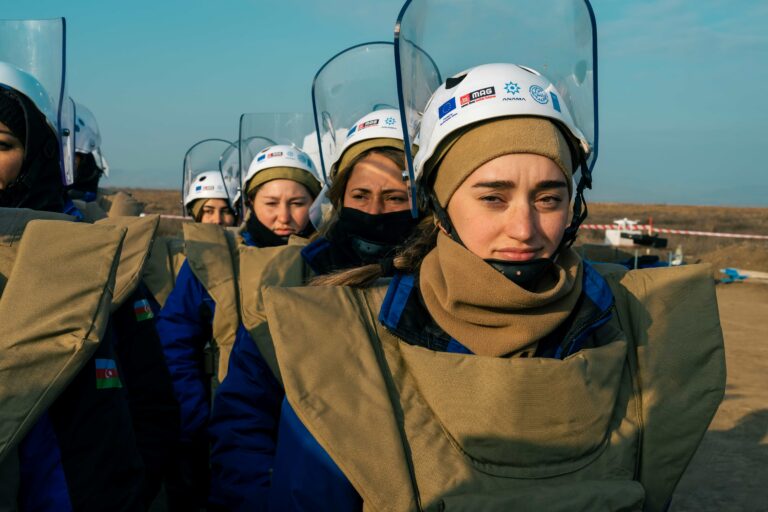
I have no regrets: the Azerbaijani women trained to clear mines
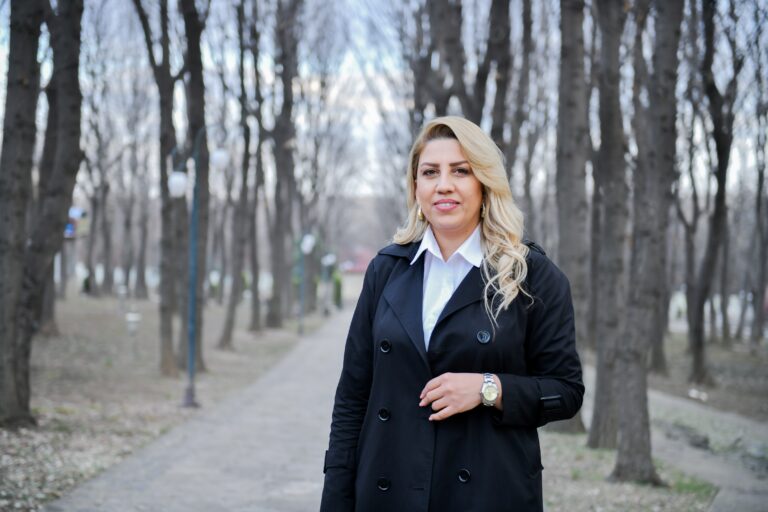
Turning a hobby into business: how Vusala Akhmadova from Tovuz helps women and children develop

Be one step ahead of a hacker: check simple cybersecurity tips!
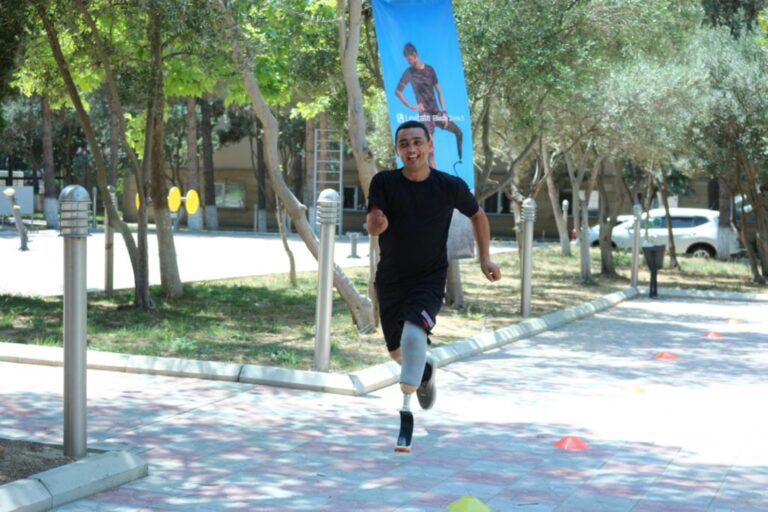
A chance for a better life: restoring justice for people with disabilities in Azerbaijan
More campaign pages:
Interested in the latest news and opportunities?
This website is managed by the EU-funded Regional Communication Programme for the Eastern Neighbourhood ('EU NEIGHBOURS east’), which complements and supports the communication of the Delegations of the European Union in the Eastern partner countries, and works under the guidance of the European Commission’s Directorate-General for Neighbourhood Policy and Enlargement Negotiations, and the European External Action Service. EU NEIGHBOURS east is implemented by a GOPA PACE-led consortium. It is part of the larger Neighbourhood Communication Programme (2020-2024) for the EU's Eastern and Southern Neighbourhood, which also includes 'EU NEIGHBOURS south’ project that runs the EU Neighbours portal.

The information on this site is subject to a Disclaimer and Protection of personal data. © European Union,







